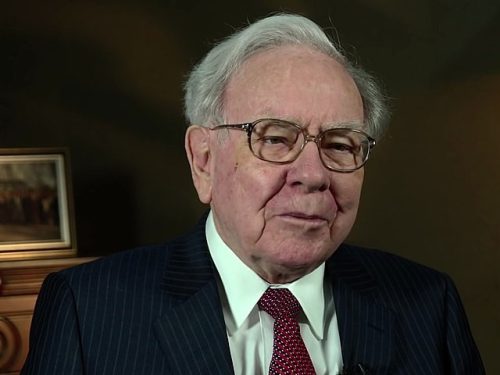The past several years has seen the meteoritic rise, then fall, then rise again in prices of Bitcoin and countless (or at least practically uncountable) other cryptocurrencies. There are the widely known Ethereum, Litecoin, and Ripple; there are the more obscure cryptos, like KodakCoin; and then there are the meme coins, like PutinCoin and TrumpCoin (now known as Freedomcoin). There is also Unobtainium, named after a conceptual material used in fiction, engineering, and thought experiments. The name is perhaps best known from its use in James Cameron’s 2009 blockbuster “Avatar,” which is the highest-grossing movie of all time.
And then, of course, there is Dogecoin, the cryptocurrency the world’s richest person, Elon Musk, made famous through a serious of tweets in which he alternatively touted the meme coin and cautioned against viewing cryptocurrencies as a serious way of investing money.
It is no wonder then, perhaps, that Warren Buffett, the “Oracle of Omaha,” Chairman and CEO of Berkshire Hathaway, and currently fifth-richest person in the world, is skeptical of cryptos and hesitant to invest in them.
At Berkshire’s annual meeting at the end of April, Buffett gave his most expansive explanation yet for why he doesn’t believe in Bitcoin. Essentially, he argued that it is not a productive asset and it doesn’t produce anything tangible. “Whether it goes up or down in the next year, or five or 10 years, I don’t know. But the one thing I’m pretty sure of is that it doesn’t produce anything,” he said. “It’s got a magic to it and people have attached magic to lots of things.”
In Western markets, cryptocurrency has become established largely as an investment asset. It is one of many places to park money in the hopes that it will increase in value. And while various cryptocurrencies have proven to offer very good returns at one time or another, these same currencies have also often experienced incredible plunges in value, seemingly on a whim.
In non-Western markets, however, many still see enormous potential for cryptos to have value as digital cash – particularly in countries or regions without stable currencies of their own. Cryptocurrency can and has been used as a reliable store of value when governments cannot ensure that their national currencies will not experience dramatic declines in value due to, for example, hyperinflation.
The problem with cryptocurrency in the U.S., as Buffett and Berkshire Vice Chairman Charlie Munger see it, is that it is not more stable than the U.S. Dollar. While there has been much to-do of late regarding rising inflation rates, and rightly so, this problem pales in comparison to the issues presented by the massive swings in value experienced by Bitcoin and its fellows.
“In my life, I try and avoid things that are stupid and evil and make me look bad in comparison to somebody else – and Bitcoin does all three,” Munger said at the Berkshire meeting. “In the first place, it’s stupid because it’s still likely to go to zero. It’s evil because it undermines the Federal Reserve System . . . and third, it makes us look foolish compared to the Communist leader in China. He was smart enough to ban Bitcoin in China.”
It appears Munger could be right on all three counts. It still remains much more likely for Bitcoin to go to zero than the U.S. dollar. It can indeed be argued that it undermines the Federal Reserve System in its efforts to affect monetary policy and keep the economy healthy and stable. And it may in fact be wise to ban a financial technology the “mining” of which has been shown to have such negative effects on the environment – and that can be used more easily than the Dollar for fraud and money laundering.
Buffett’s and Munger’s detractors, however, frequently argue that the two men are speaking out so vociferously against cryptos simply because they’ve realized they missed the boat and do not want to admit it. Others argue that the Berkshire leaders have fundamentally failed to grasp crypto as a concept. Neither of these arguments seem altogether likely.
Both Buffett and Munger have quite long track records of successful investing – in fact, one would be hard-pressed to find a list of the most successful investors in history that does not include Buffett. Meanwhile, Buffett’s success, by his own admission, has been due in large part to the advice of Munger.
And while they may not be getting any younger, and crypto seems to be a young man’s (or woman’s) game, it seems even less likely that none of the roughly 372,000 Berkshire employees, nor anyone else who has their ears, nor the 500 pages of books and corporate reports Buffett alone is said to read per day, were able to impress upon the two brilliant men the concept and potential value of crypto.
Sometimes, the simplest explanation really is the nearest to the truth. Buffett and Munger are most likely being largely forthright with their views on crypto: they just do not see the value of it in well-established, stable economies as a store of value, unit of account, or medium of exchange. It is not a physical asset that can be bought and held and sold. It is not even intellectual property. It is simply an alternative, more volatile form of currency that does not meaningfully improve upon the options already available, and may in fact do more harm than good.
























